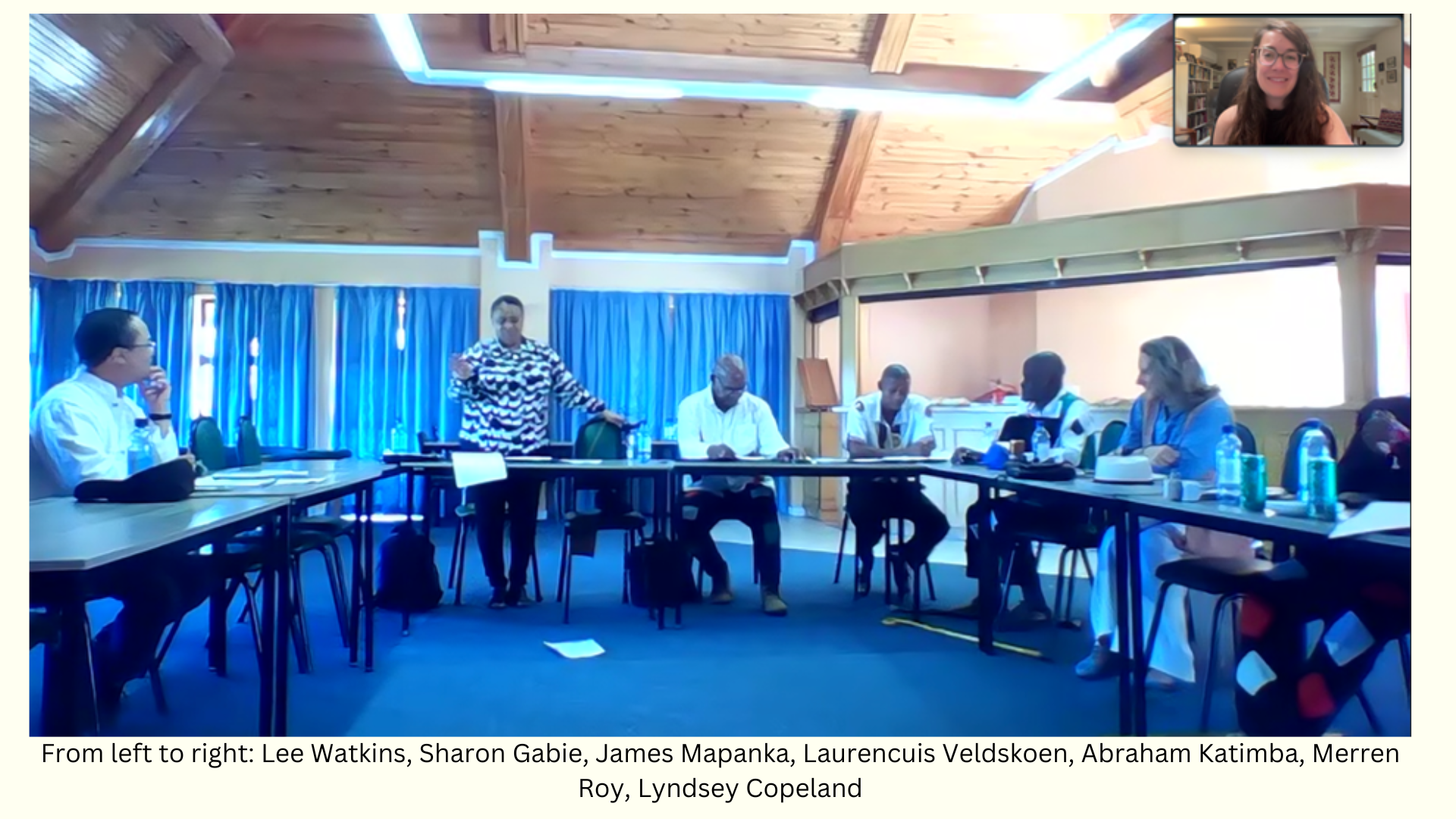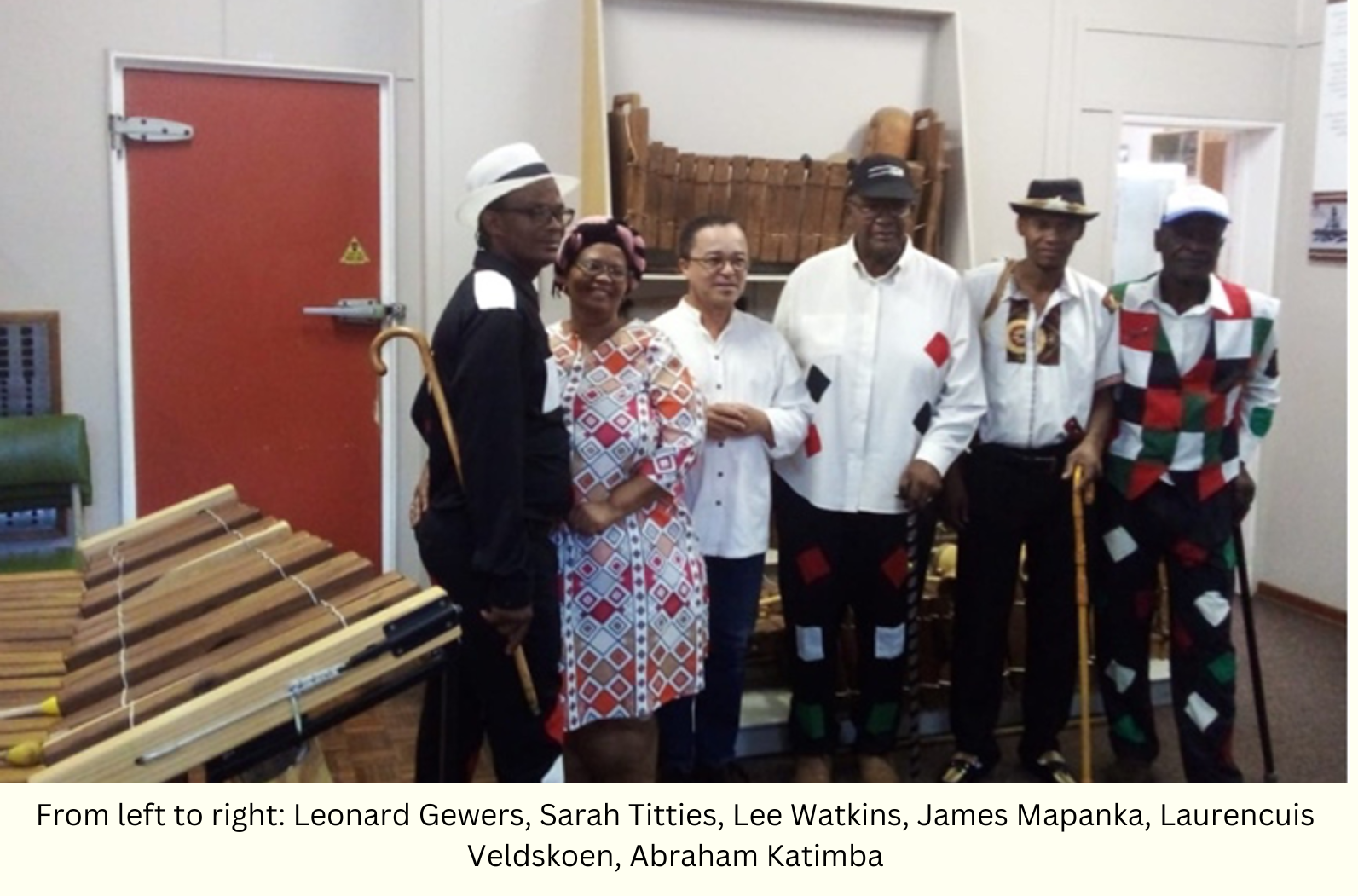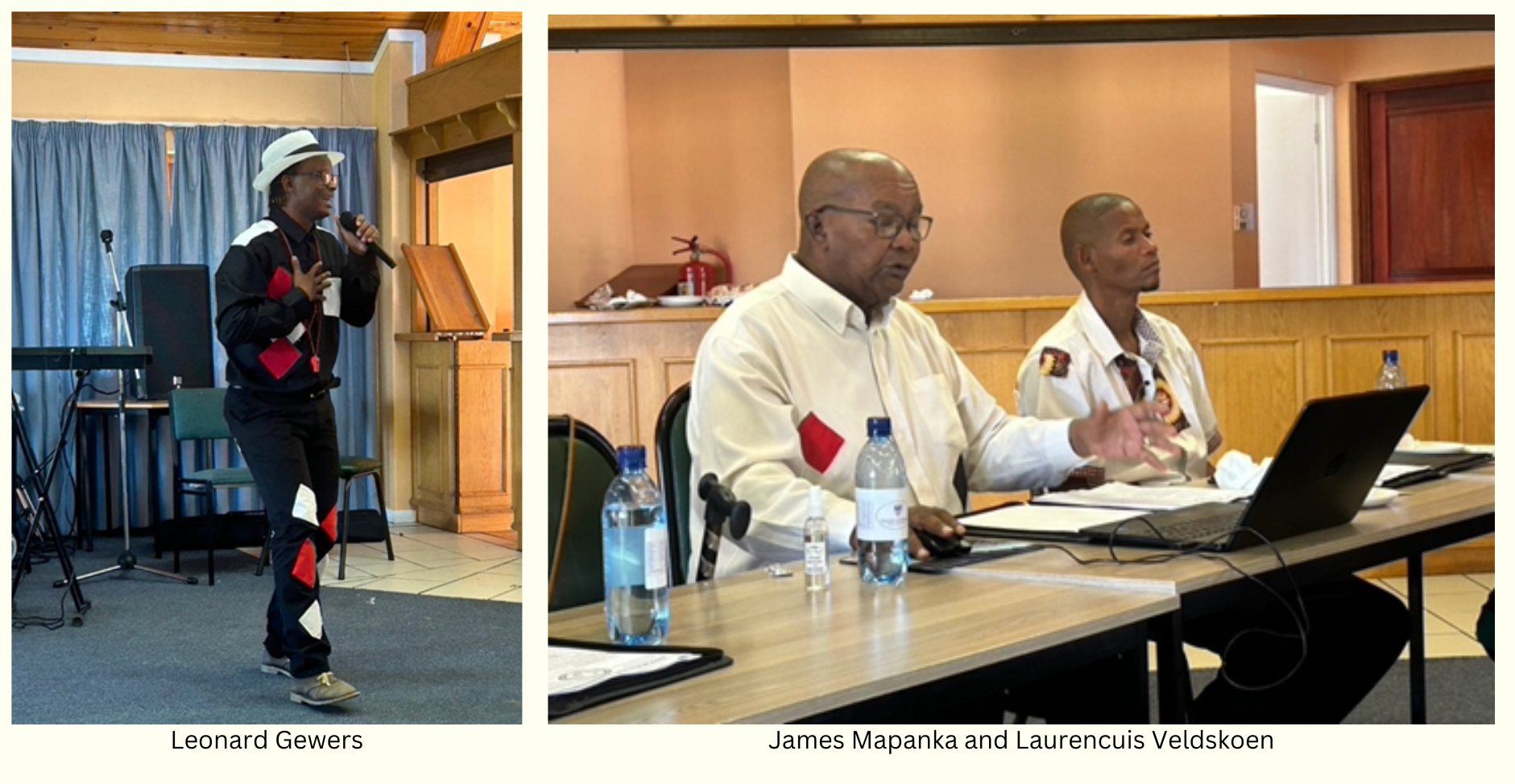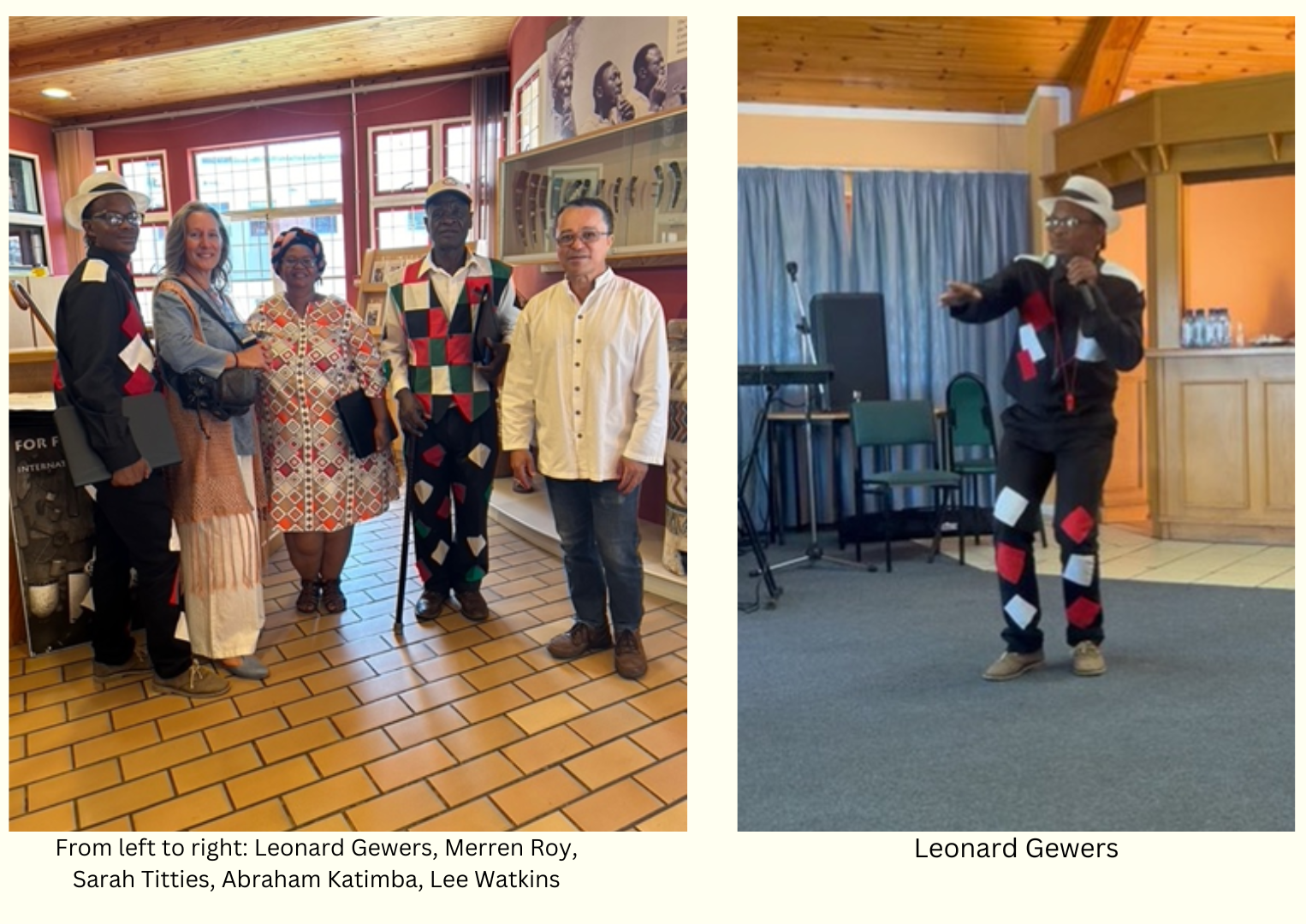Sounding Indigenous in South Africa: Music and Performance Heritage in Khoisan Revival
Dr. Lyndsey Copeland of Carleton University in Canada and Dr. Lee Watkins of Rhodes University in South Africa received a competitive grant from Canada’s Social Sciences and Humanities Research Council (SSHRC) to fund a collaborative research project concerning the cultural heritage of Indigenous communities in South Africa.
The project, “Sounding Indigenous in South Africa”, investigates and archives the music and performance practices of people in South Africa’s Cape region who identify as Khoisan (also spelled Khoi-San, Khoesan, Khoe-Sān) and who are known as the “first people”. Settler colonialism in southern Africa and centuries of violence against the region’s indigenous peoples decimated their populations. Today, the ancestors of numerous and distinct social groups across South Africa identify as “Khoisan” and claim Indigenous status under this name. Buoyed by global indigenous rights movements, Khoisan activists have made considerable effort in recent decades to revive indigenous practices in South Africa, including languages, cosmological beliefs, song repertoires, and performance heritage.
 With community permissions and in collaboration with Indigenous partners, the project’s team of academic researchers and Khoisan scholar-activists will collaboratively archive and study Khoisan heritage performances of music and dance with communities across the Cape. Of central concern is how heritage performance—in particular, of dances and song lines—functions in the contemporary imagination and telling of Khoisan social history in South Africa. What role does performance heritage serve in the contemporary construction of Khoisan identity? How are performances leveraged in the ongoing Khoisan cultural revival and political movement? And how does heritage performance support the interests of Khoisan communities as against those of the South African government, private organizations, and tourists?
With community permissions and in collaboration with Indigenous partners, the project’s team of academic researchers and Khoisan scholar-activists will collaboratively archive and study Khoisan heritage performances of music and dance with communities across the Cape. Of central concern is how heritage performance—in particular, of dances and song lines—functions in the contemporary imagination and telling of Khoisan social history in South Africa. What role does performance heritage serve in the contemporary construction of Khoisan identity? How are performances leveraged in the ongoing Khoisan cultural revival and political movement? And how does heritage performance support the interests of Khoisan communities as against those of the South African government, private organizations, and tourists?
This collaborative project aims to recognize and conserve Khoisan cultural knowledge as well as produce new research data for the future (comparative) study of cultural strategies deployed by Indigenous groups in diverse contexts. Project outcomes—including open-access and digitized community archives of Khoisan music and dance heritage—will proffer concrete materials for Khoisan communities to use in their cultural conservation and political mobilization efforts. Many Khoisan activists make recourse to inherited cultural practices, such as music, dance, and storytelling, as evidence of their Indigenous legal status and right to land. This research will be of special relevance to Khoisan Councils engaged in state policy reform.
Team members and community participants of “Sounding Indigenous in South Africa” met for the first time in November 2023 for a ceremonial start to the project. Present at the meeting were Dr. Sharon Gabie of Nelson Mandela University, Dr. Lee Watkins and Dr. Elijah Madiba of Rhodes University’s International Library of African Music (ILAM); Mr. James Mapanka of the South African Nama Development Association (SANDEVA) and his colleagues Sarah Titties, Leonard Gewers, Abraham Katimba, and Laurencuis Veldskoen; and Merran Roy of the Intlantsi Creative Development Project. Dr. Lyndsey Copeland of Carleton University attended virtually. Following a project planning meeting and visit to ILAM’s music archives, the Rimevasmaak-based artists Gewers, Katimba, and Veldskoen performed a public concert of Nama riel dance and songs.
More pictures 

